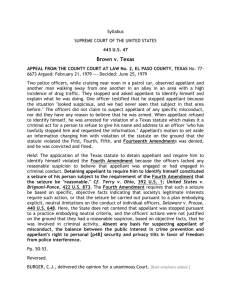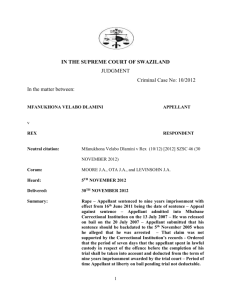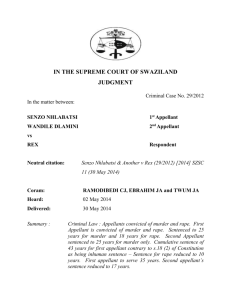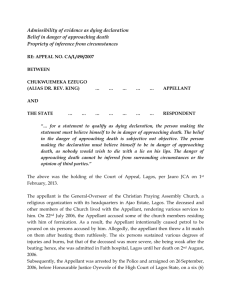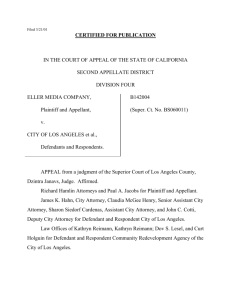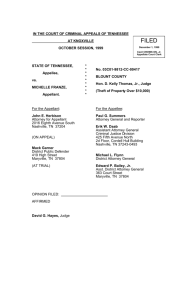j-s58028-15 non-precedential decision
advertisement
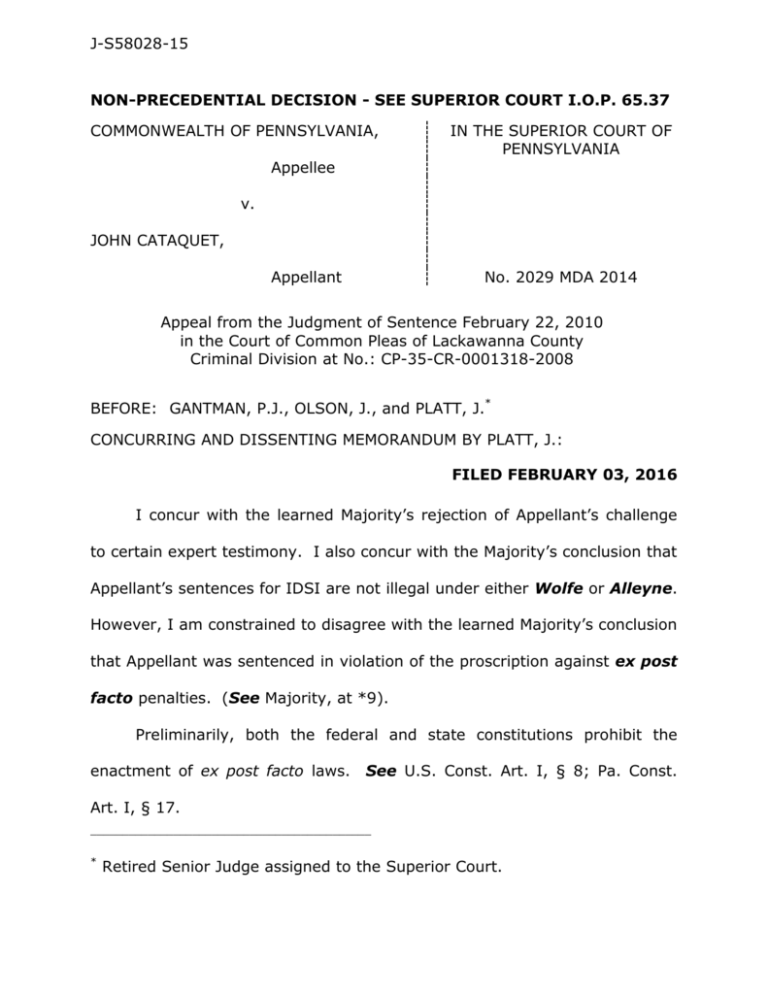
J-S58028-15 NON-PRECEDENTIAL DECISION - SEE SUPERIOR COURT I.O.P. 65.37 COMMONWEALTH OF PENNSYLVANIA, IN THE SUPERIOR COURT OF PENNSYLVANIA Appellee v. JOHN CATAQUET, Appellant No. 2029 MDA 2014 Appeal from the Judgment of Sentence February 22, 2010 in the Court of Common Pleas of Lackawanna County Criminal Division at No.: CP-35-CR-0001318-2008 BEFORE: GANTMAN, P.J., OLSON, J., and PLATT, J.* CONCURRING AND DISSENTING MEMORANDUM BY PLATT, J.: FILED FEBRUARY 03, 2016 I concur with the learned Majority’s rejection of Appellant’s challenge to certain expert testimony. I also concur with the Majority’s conclusion that Appellant’s sentences for IDSI are not illegal under either Wolfe or Alleyne. However, I am constrained to disagree with the learned Majority’s conclusion that Appellant was sentenced in violation of the proscription against ex post facto penalties. (See Majority, at *9). Preliminarily, both the federal and state constitutions prohibit the enactment of ex post facto laws. See U.S. Const. Art. I, § 8; Pa. Const. Art. I, § 17. ____________________________________________ * Retired Senior Judge assigned to the Superior Court. J-S58028-15 Generally, a statute, or application thereof, will be considered invalid as an ex post facto law if one of the following four factors is present: (1) The law makes an act criminal which was not criminal when done; (2) The law aggravates a crime, or makes it greater than it was when committed; (3) The law changes a punishment, and makes it greater than it was when the punishable act was committed; and (4) The law alters the rules of evidence and requires less or different testimony than the law required at the time the offense was committed, in order to convict. Commonwealth v. Riley, 384 A.2d 1333, 1335 (Pa. Super. 1978) (en banc) (citations omitted). See also Calder v. Bull, 3 U.S. 386, 390 (1798). “[T]he standards applied to determine an ex post facto violation under the Pennsylvania Constitution and the United States Constitution are comparable.” Commonwealth v. Perez, 97 A.3d 747, 759 (Pa. Super. 2014) (citation omitted). Here, on independent review, I would conclude that none of the four enumerated factors applies in this case. In particular, the third factor (new law changes punishment, and makes it greater than it was when the punishable act was committed), does not preclude the sentence imposed. To the contrary, the Guideline Sentence Form confirms that the court properly sentenced Appellant under the version of the statute applicable from 1995 until 2004 (specifying mandatory minimum sentence of thirty -2- J-S58028-15 months’ incarceration), during which the crime occurred.1 (See Guideline Sentence Form, 2/22/10). However, in any event, the court did not sentence Appellant to the specified mandatory minimum. Instead, the court sentenced above the minimum (but below the maximum), to a term of not less than thirty-six months’ (to not more than seventy-two months’) incarceration. see also N.T. Sentencing, 2/22/10, at 7). (See id.; It bears noting that the sentencing court did not refer in any way to the sentence as being a mandatory minimum. (See N.T. Sentencing, 2/22/10, at 7). Therefore, the whole issue of whether the sentencing court imposed a mandatory minimum sentence is not relevant. I would affirm the judgment of sentence without reservation. Accordingly, I respectfully concur in part and dissent in part. ____________________________________________ 1 Based largely on this reference I respectfully disagree with the learned Majority’s factual conclusion that the trial court “could only have applied” the version of 42 Pa.C.S.A. § 9718 in effect from November 30, 2004 until December 31, 2006. (See Majority, at *13). -3-
![[J-56A&B-2014][MO – Eakin, J.] IN THE SUPREME COURT OF](http://s3.studylib.net/store/data/008438149_1-ddd67f54580e54c004e3a347786df2e1-300x300.png)





